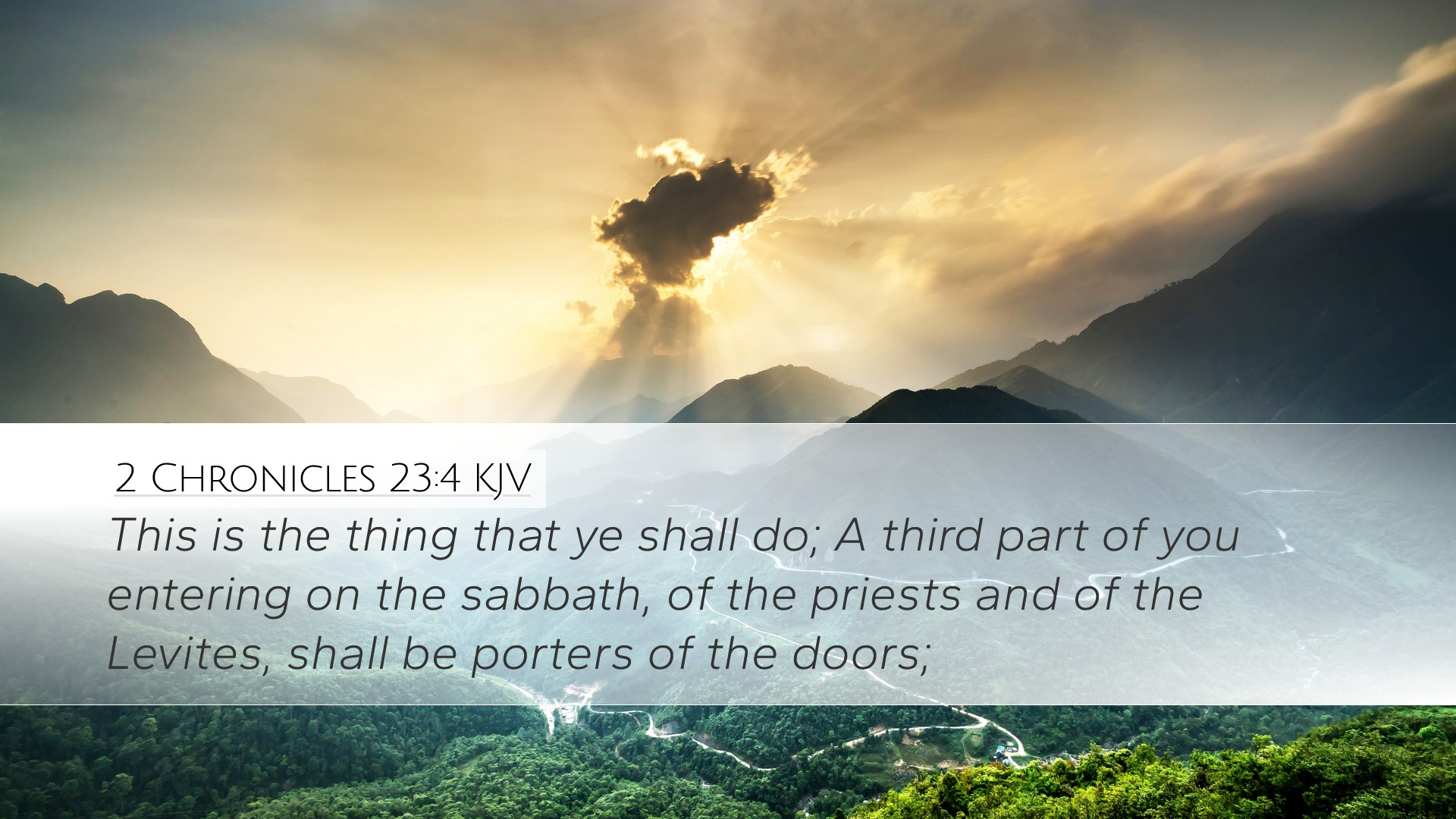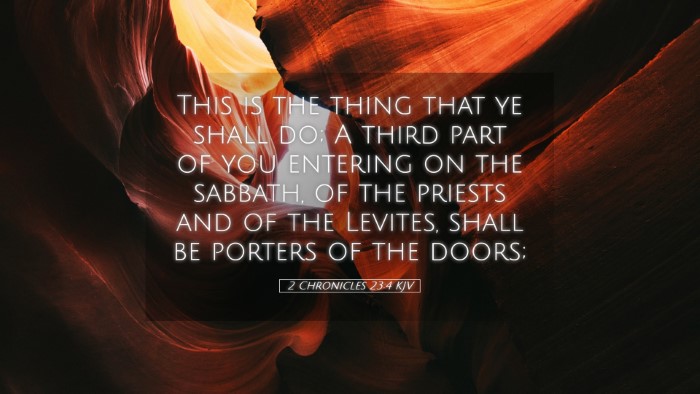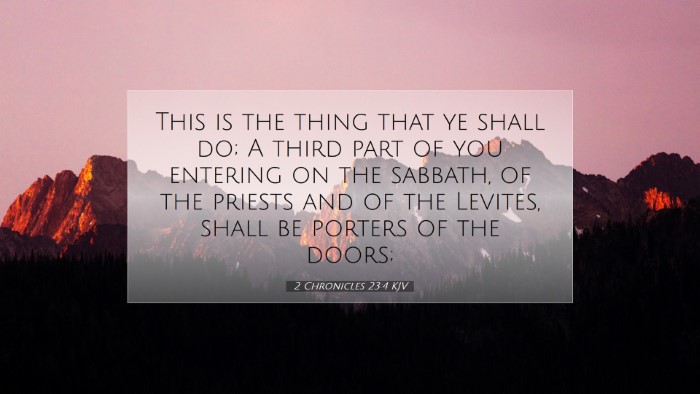Commentary on 2 Chronicles 23:4
Verse Reference: 2 Chronicles 23:4
“This is the thing that ye shall do; A third part of you that enter in on the sabbath shall even be keepers of the watch of the king's house;”
Introduction
The book of 2 Chronicles, often focused on Judah and the Temple worship, provides a unique lens on the history of the Southern Kingdom. In chapter 23, we witness a significant moment in Israel's history involving the preservation of the Davidic line and the rightful worship of Yahweh. This commentary draws from various public domain sources, exploring the theological and historical implications encapsulated in 2 Chronicles 23:4.
Context and Historical Setting
At this juncture in 2 Chronicles, we find ourselves amidst the intrigue following the death of King Ahaziah and the subsequent rise of Athaliah, his mother, who seized the throne and attempted to eradicate the royal line from David. The decree presented in this verse is made amid a coup led by the high priest Jehoiada, who protects the young king, Joash. The emphasis in this chapter is on the restoration of rightful kingship and the reestablishment of true worship in a corrupted environment.
Commentary Insights
Matthew Henry's Commentary
Matthew Henry highlights the urgency of the situation as Jehoiada calls upon the Levites and others to act decisively. He notes that the division of duties among the Levites serves both a practical purpose and a symbolic reminder of God’s order. Henry emphasizes the importance of organized ministry in worship, illustrating that the Levites’ dedication to their roles is crucial for the protection of the royal lineage and the proper functioning of the temple.
Albert Barnes' Commentary
Albert Barnes broadens the context by asserting that the directive given reflects a well-structured approach to temple duties. He notes that the watchmen's commitment symbolizes vigilance over the sacred space of worship as well as the earthly authority of God’s chosen monarch. Barnes elaborates that this tri-partite division - watchmen for the king's house, worshippers, and those guarding the entrances - displays divine order amidst turmoil, an important principle in ecclesiastical governance.
Adam Clarke's Commentary
According to Adam Clarke, the specificity of roles assigned to the Levites denotes the seriousness of their duty. He remarks on how such organization preserved not only the physical temple but also spiritual integrity against the backdrop of idolatry promoted by Athaliah’s regime. Clarke also reminds readers that these actions were aligned with God’s covenant promises to David, providing a historical foundation that legitimizes Joash's kingship.
Theological Implications
This verse and the accompanying context prompt several important theological reflections:
- The Importance of Leadership: The involvement of the high priest signifies that the spiritual leadership must be vigilant and proactive in maintaining God’s order and the covenant community.
- Divine Providence: The preservation of Joash as a child serves as a testament to God's providential care over His promises, ensuring that the Davidic line remains intact despite attempts to extinguish it.
- Community Responsibility: The responsibilities placed on the Levites illustrate that community members must be engaged in the health of worship and protection of what is sacred.
Applications for Today
For pastors, theologians, and students of the Bible, this verse presents applicable lessons:
- Leadership in Worship: Today’s church leaders are called to be dutiful in their responsibilities, ensuring order and fidelity to God's Word amidst societal chaos.
- Covenantal Awareness: Understanding the historical narratives within Scripture deepens one’s appreciation for God’s unchanging promises, reinforcing faith in current times.
- Vigilance in Ministry: Just as the Levites were tasked to guard the sanctity of the temple, modern believers must guard their communities against influences that threaten to undermine their faith.
Conclusion
2 Chronicles 23:4 offers a profound insight into the intersection of divine providence, human responsibility, and the order of worship. Drawing from the insights of notable commentators, this passage encourages contemporary Christian leaders to uphold the sanctity of worship while remaining vigilant in the face of challenges. The legacy of the faithful action during this crucial moment in biblical history serves as a timeless model for enduring faithfulness in the service of God’s kingdom.


